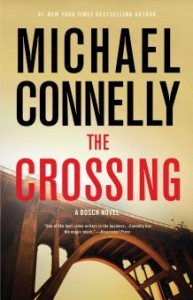10 Best Whodunits
I love a good mystery! Here mystery novelist John Verdon (his latest book is Wolf Lake, featuring NYPD homicide detective Dave Gurney) offers a list of “ten remarkable works, each of which has a special appeal to my whodunit mentality”:
- Oedipus Rex by Sophocles
- Hamlet by William Shakespeare
- The Hound of the Baskervilles by Arthur Conan Doyle
- The Galton Case by Ross Macdonald
- On Beulah Height by Reginald Hill
- Tinker, Tailor, Soldier, Spy by John le Carré
- Gorky Park by Martin Cruz Smith
- Red Dragon by Thomas Harris
- Hypothermia by Arnaldur Indridason
- The Crossing by Michael Connelly
I love that he has included literary classics as well as classic mysteries. And since I’ve only read four of these books (numbers 1,2, 8, and 10), I have yet some more titles to add to my TBR list.
Where Lit-Fic and Horror Converge: Ten Literary Chillers
While researching horror literature I came across this article by writer Christopher Shultz. Shultz addresses the snobbish discrimination between literary fiction and genre fiction (such as horror) to end up with a chronological list of 10 novels and short stories that use horror elements (dark subject matter, entities of a sinister and often supernatural nature, a sense of dread and terror) while also achieving standard criteria of literary fiction (complex characters, existential questions, and elegant prose):
- ‘Frankenstein, Or The Modern Prometheus’ by Mary Shelley
- “The Raven” by Edgar Allan Poe
- “The Demon Lover” by Elizabeth Bowen
- “The Lottery” by Shirley Jackson
- “Where Are You Going, Where Have You Been?” by Joyce Carol Oates
- ‘Rosemary’s Baby’ by Ira Levin
- “The Companion” by Ramsey Campbell
- “The Paperhanger” by William Gay
- ‘Black Moon’ by Kenneth Calhoun
- ‘The Fever’ by Megan Abbot
I usually avoid horror, so I’ve only read three of these (numbers 1,2, and 4; and I’ve seen the film Rosemary’s Baby, if that counts). From Shultz’s descriptions I’m also thinking of adding numbers 5 and 10 to my TBR list.
SIX WRITERS ON THE GENIUS OF MARCEL PROUST
In honor of Marcel Proust’s 145th birthday on July 10, six current authors comment on why his work remains so important today. Contributing authors are Siri Hustvedt, Francine Prose, Edmund White, André Aciman, Aleksandar Hemon, and Daniel Mendelsohn.
The Failure of Language and A Dream of the West: An Interview with Bonnie Nadzam
Bryan Hurt interviews his friend Bonnie Nadzam, whom he describes as “someone who felt a dis-ease with conventional fiction and who sought to experiment and push against the boundaries of expectation and form.”
Nadzam is the author of two novels, Lamb (2011) and Lions (2016). Here are some of her statements about how and why she writes:
knowing a character is as complex a process as knowing myself. Both seem to involve a process of patience and observation, and of allowing space for unexpected things/motivations/behaviors to arise.
with Lions in particular, I did try to make the reader a character in this story, to the extent that the reader is tracking signs and assembling and telling stories alongside everyone else in the book. And everyone is mistaken; and also, by the end, everyone is also peculiarly exactly right.
I can’t just write fiction as though language were functioning and reliable. I also, however, don’t want to write heady philosophical fiction. So that means experimenting to find ways to drop into stories that are as unreliable as the language in which they’re written.
I suppose when I write fiction, it’s because there’s something I feel the need to express that I can’t get at intellectually.
© 2016 by Mary Daniels Brown

